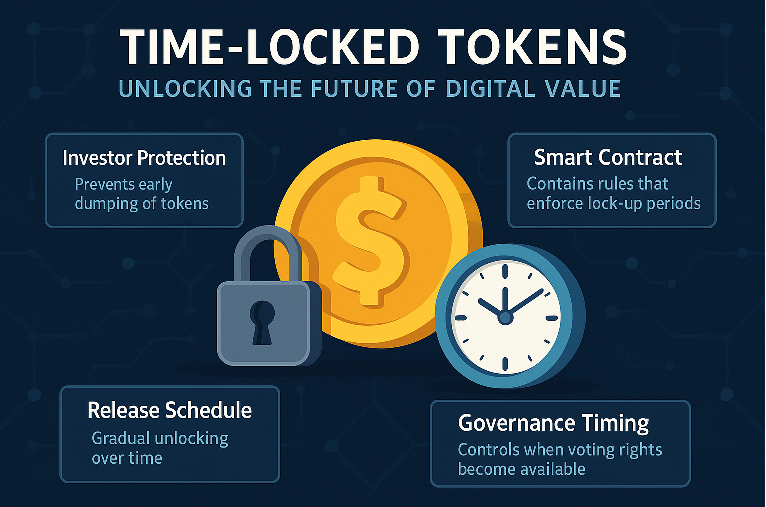Token-Based Economies have emerged as a revolutionary model in the digital era, enabling decentralized transactions, incentivized user participation, and the creation of digital assets across various industries. However, with the proliferation of digital tokens, significant security risks have surfaced, threatening the integrity, trust, and sustainability of these economic systems. This article explores the vulnerabilities inherent in token-based economies, examines high-profile hacks and scams, and offers actionable countermeasures to mitigate these risks.
Understanding Token-Based Economies
Token-Based Economies operate by leveraging blockchain technology to create and manage digital tokens that represent assets, rights, or access to services. These tokens can be fungible, like cryptocurrencies (e.g., Bitcoin, Ethereum), or non-fungible, like NFTs representing unique digital assets. By decentralizing control and enabling peer-to-peer transactions, token-based systems offer numerous advantages, including transparency, reduced transaction costs, and global accessibility.
However, this decentralized nature also introduces challenges. Without centralized oversight, security vulnerabilities can be exploited by malicious actors. Smart contract bugs, inadequate security protocols, and phishing scams are just a few of the issues plaguing token economies.
Common Security Risks in Token-Based Economies
1. Smart Contract Vulnerabilities of Token-Based Economies
Smart contracts are automated agreements that execute predefined actions when specific conditions are met, with the contract terms embedded directly in the code. While they automate transactions and reduce the need for intermediaries, poorly written smart contracts can contain bugs or design flaws. Malicious actors often exploit these vulnerabilities to siphon off funds or disrupt operations.
Case Study: The DAO Hack (2016)
One of the most infamous smart contract exploits occurred in 2016 when the Decentralized Autonomous Organization (DAO) on Ethereum was hacked due to a recursive call vulnerability. This exploit led to the theft of approximately $60 million worth of Ether, prompting a controversial hard fork of the Ethereum blockchain.
2. Phishing and Social Engineering Attacks of Token-Based Economies
Phishing attacks are rampant in token-based economies, where users are tricked into revealing private keys or seed phrases. These scams often mimic legitimate platforms through fake websites, emails, or social media campaigns, leading unsuspecting users to compromise their wallets.
3. Rug Pulls and Exit Scams of Token-Based Economies
In decentralized finance (DeFi), rug pulls occur when developers create seemingly legitimate projects, attract significant investment, and then abruptly withdraw all funds, leaving investors with worthless tokens. These scams exploit the lack of regulatory oversight and the trust users place in anonymous developers.
Case Study: Squid Game Token Scam (2021)
In 2021, the Squid Game token gained massive popularity due to its association with the Netflix series. However, the project lacked transparency, and the developers executed a rug pull, disappearing with millions of dollars, causing the token’s value to plummet to zero.
4. Exchange Hacks of Token-Based Economies
Cryptocurrency exchanges are prime targets for hackers. Security breaches can lead to the theft of millions in digital assets. Centralized exchanges, despite implementing robust security measures, remain vulnerable due to the large sums they handle.
Case Study: Mt. Gox Collapse (2014)
Mt. Gox, once the largest Bitcoin exchange, suffered a catastrophic hack in 2014, losing 850,000 Bitcoins (worth over $450 million at the time). This event significantly damaged trust in cryptocurrency exchanges and highlighted the need for better security practices.
5. Exploitation of DeFi Protocols
DeFi platforms, while innovative, often launch without thorough security audits. Attackers exploit these vulnerabilities through flash loan attacks, oracle manipulation, and liquidity pool exploits, causing substantial financial losses.
Case Study: bZx Protocol Exploits (2020)
The bZx protocol suffered multiple flash loan attacks in 2020 due to flawed smart contract logic and oracle manipulation. These attacks led to losses exceeding $1 million and raised concerns about the security of DeFi protocols.
Countermeasures to Mitigate Security Risks
1. Comprehensive Smart Contract Audits
Before deploying smart contracts, projects should undergo thorough security audits conducted by reputable firms. Conducting frequent code evaluations, implementing formal verification methods, and launching bug bounty initiatives are effective strategies to detect and resolve security flaws.
2. Multi-Factor Authentication (MFA) and Hardware Wallets
Users should enable MFA on all accounts and utilize hardware wallets for storing significant amounts of tokens. Hardware wallets provide offline storage, reducing the risk of remote hacks.
3. Transparent and Verified Projects
Investors should conduct due diligence before investing in token-based projects. Reviewing whitepapers, team backgrounds, and third-party audits can help identify legitimate ventures and avoid scams.
4. Decentralized Exchange (DEX) Security
While decentralized exchanges mitigate the risks associated with centralized custodianship, they are not immune to exploits. Implementing security measures like liquidity lock-ups, time-locked transactions, and decentralized governance can enhance security.
5. Regulatory Compliance and Oversight
Governments and regulatory bodies should establish frameworks that encourage innovation while protecting investors. Compliance requirements for token issuers and exchanges can deter fraudulent activities and improve market integrity.
6. Continuous Security Monitoring
Utilizing automated security tools for continuous monitoring of smart contracts and protocols can detect suspicious activities in real-time. AI-driven analytics can also predict and mitigate potential threats.
7. User Education and Awareness
Educating users about common scams, secure wallet practices, and phishing threats can empower them to safeguard their assets. Community-driven reporting mechanisms can also alert users to suspicious projects.
The Future of Security in Token-Based Economies
As token-based economies continue to expand, integrating advanced security solutions will be paramount. Innovations such as zero-knowledge proofs, decentralized identity verification, and post-quantum cryptography hold promise in enhancing security.
Furthermore, cross-industry collaboration between developers, security experts, and regulators can foster a safer ecosystem. Building trust through transparency, accountability, and robust security measures will be essential for the sustainable growth of token-based economies.
Conclusion of Token-Based Economies
Token-Based Economies offer immense potential to revolutionize industries and democratize access to financial services. However, the security risks associated with this model cannot be overlooked. From smart contract vulnerabilities and phishing attacks to rug pulls and exchange hacks, the threats are multifaceted and evolving. By implementing comprehensive security measures, fostering regulatory compliance, and prioritizing user education, stakeholders can mitigate these risks and pave the way for a secure and resilient token-based future.
The continued evolution of security technologies and best practices will be crucial in safeguarding the integrity of token-based economies. As innovation progresses, proactive defense strategies and collective vigilance will ensure that these economies can thrive securely in the digital age.




















